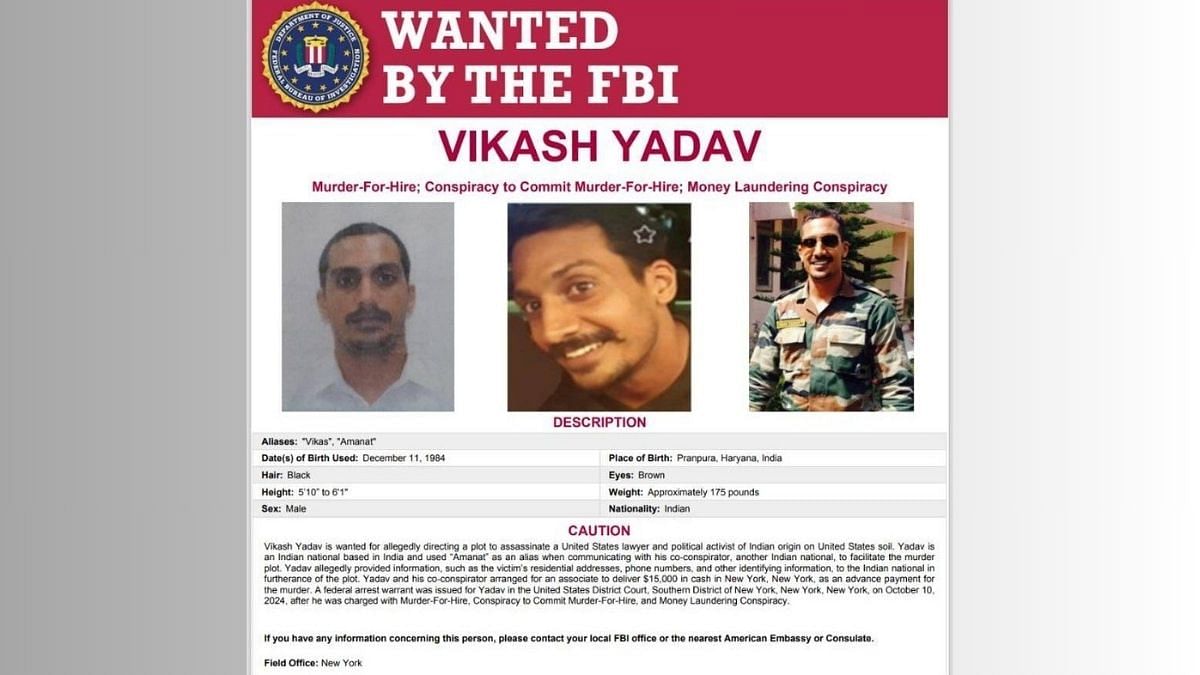 |
|
The case of Vikash Yadav, a former intelligence officer accused by the United States in a 'murder-for-hire plot' against India-designated terrorist Gurpatwant Singh Pannun in New York, reveals a curious story of an individual entangled in international intrigue and battling for a permanent position within India's intelligence apparatus. ThePrint's investigation, based on documents and sources familiar with the case, paints a picture of Yadav's career trajectory, highlighting the complexities of his involvement in sensitive operations and the legal battles he waged to secure his place within the Research and Analysis Wing (R&AW).
Yadav's tenure at R&AW was marked by a peculiar contradiction: despite serving as a senior field officer (SFO) for nine years, he remained on probation. This anomaly prompted him to seek legal redress through the Central Administrative Tribunal (CAT), where he argued for the confirmation of his position. His lawsuit was filed against the R&AW chief, the Cabinet Secretariat officials, and the Aviation Research Centre, highlighting the bureaucratic hurdles he faced. Notably, the timing of the CAT proceedings overlaps with significant events related to the alleged murder-for-hire plot and the subsequent investigations. It is unclear whether the government's delayed confirmation of Yadav's job was influenced by these events, but the confluence of these timelines raises crucial questions.
The narrative raises further questions about the nature of Yadav's alleged involvement in the plot against Pannun. His actions, including the payment of $15,000 to an undercover US Drug Enforcement Administration operative, require explanation. It remains unclear whether he acted on official instructions or independently. Additionally, the details of his role in the operation and the level of authorization he received raise concerns about the internal oversight and accountability mechanisms within R&AW. The FBI's placement of Yadav on its 'most wanted' list and the issuance of a federal warrant for his arrest highlight the seriousness of the allegations against him.
The aftermath of the US accusations saw Yadav's suspension from R&AW and subsequent dismissal. He was returned to his parent Central Armed Police Force (CAPF) organization, only to face further dismissal. However, the legal battle continues on multiple fronts. While the US seeks Yadav's extradition, he is also facing criminal charges in India, including attempted murder, extortion, and arms violations, stemming from an alleged incident involving a local businessman. The Delhi Police alleges links between Yadav and the Lawrence Bishnoi gang, adding another layer of complexity to his case. Legal sources have indicated that Yadav's extradition may be hindered by the pending criminal proceedings in India.
The case of Vikash Yadav serves as a cautionary tale, illustrating the vulnerability of intelligence agencies to internal conflicts, bureaucratic inertia, and the potential for individuals to exploit loopholes within the system. The lack of clarity surrounding Yadav's actions and the timing of his job confirmation raise serious questions about the efficacy of R&AW's internal controls and the potential for unauthorized actions to occur. The case also highlights the challenges of inter-agency cooperation and extradition in complex international investigations, particularly when individuals are implicated in sensitive operations involving multiple jurisdictions.
Source: Indian spy Vikash Yadav was fighting R&AW in CAT for his job while ‘targeting’ Pannun
